Classic Movie Review: 'Real Life' Albert Brooks Invents and Destroys the Reality Movie
Real Life was the first meta-masterpiece from writer-director-star Albert Brooks.
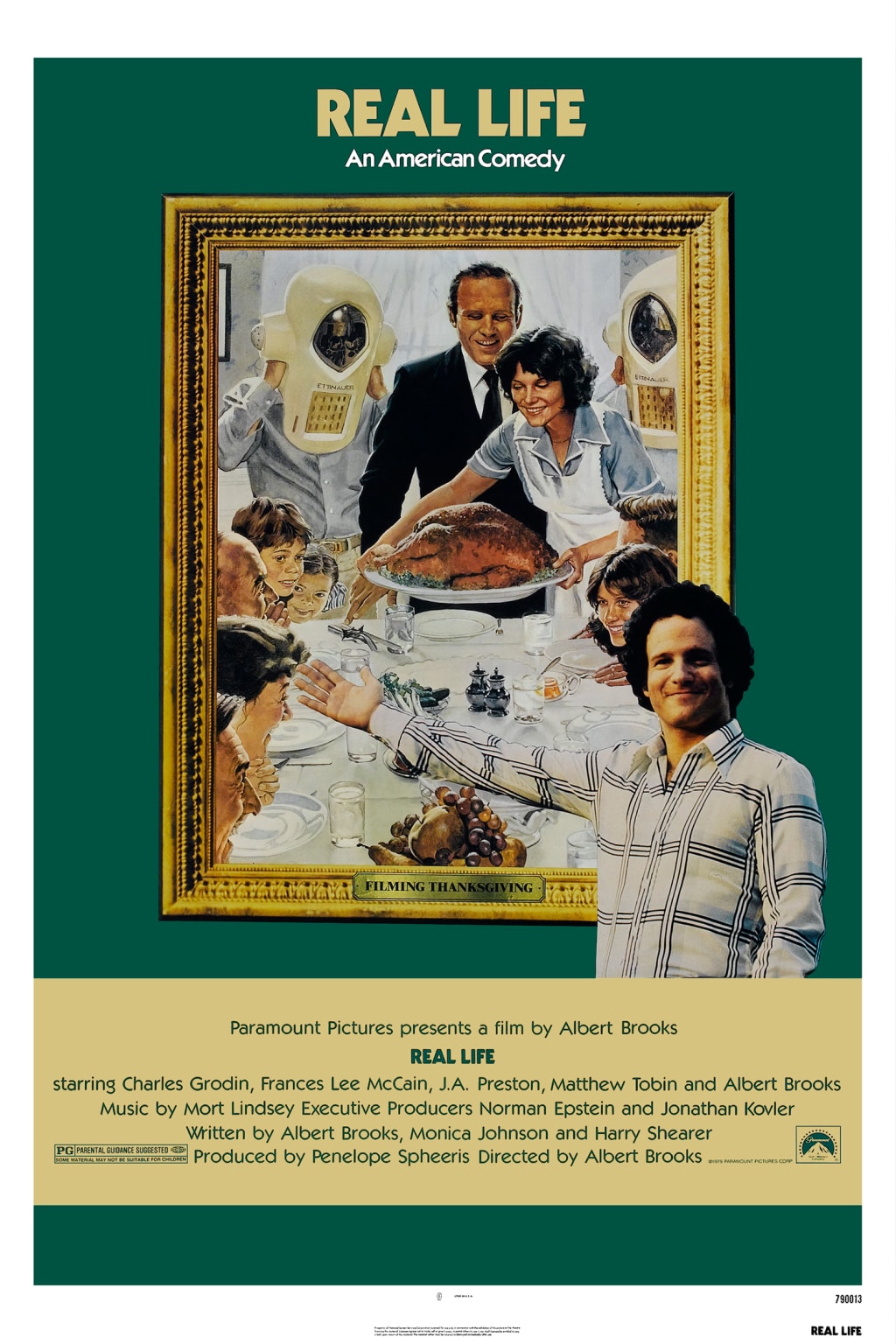
Real Life (1979)
Directed by Albert Brooks
Written by Albert Brooks, Monica Johnson, Harry Shearer
Starring Albert Brooks, Charles Grodin
Release Date March 2nd, 1979
Published November 13th, 1979
Real Life requires a little context. In 1972 PBS launched what many consider the very first reality show. American Family was a day in the life series about the Loud Family. The show chronicled the day to day life of an everyday American family. The series was a social experiment and became the progenitor of an industry that is now a staple of American television programming. Real Life is Albert Brooks' response to the phenomenon that was American Family, a reality movie. Brooks meta concept is both a critique of American Family and the notion of cameras being able to capture reality.
In Real Life, Albert Brooks stars as Albert Brooks, television star and filmmaker. Brooks wants to capture real life in the first ever reality movie. He plans to spend the next year living in Phoenix, Arizona, in a home directly across the street from the family who will star in his reality movie, the Yeager family, headed up by Dad, Warren Yeager, and his deeply depressed wife, Jeanette (Frances Lee McCain). For one year, cameras will follow the Yeager's everywhere as they gather footage for Brooks' documentary.
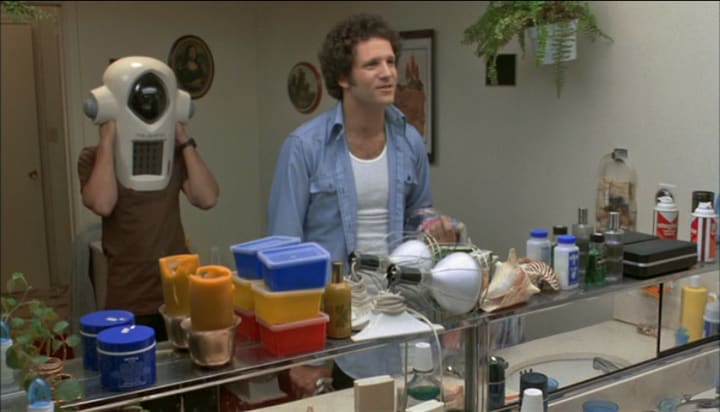
And things proceed from there. The social experiment is being monitored by doctors working for a family research firm who have ways of measuring mental health down to examining the way someone holds a mug. From the start, the experiment appears to be a disaster. On the second day of the experiment, after a fight with her idiot husband, Jeanette decides to leave and go stay with friends, leaving the cameras behind. Brooks himself has to go and win her back to the project, though this is fraught with Jeanette believing that Albert is coming on to her, something she's receptive to.
As for Warren Yeager, he starts the project trying to control the situation. He wants his family to put their best face forward for the camera, immediately breaking with the idea that the movie is capturing any kind of reality. His family isn't playing along either as his daughter begins to perform for the camera, wearing a wedding dress and performing for the camera like a hammy actress. The son is mostly kept off-screen and is mostly unaddressed. I was reminded of Richie Cunningham's older brother who went upstairs in an episode of the first season of Happy Days and was never heard from again.
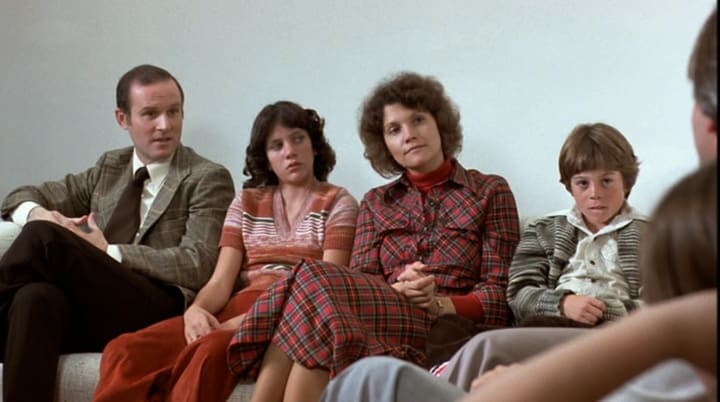
From there, Brooks tries to manufacture drama where he can find it. The family starts being incredibly boring and Warren grows despondent after losing a patient, a horse, in a botched surgery at his veterinary clinic. Warren desperately wants Albert to take the horse dying out of the documentary as the death is his fault but Brooks refuses to say he will do it, leading to Warren becoming so depressed that he sleeps for 18 hours a day. The project teeters close to being cancelled at every turn, but especially after one of the psychiatrists involved decides to leave and write a tell all book about the disastrous first month of the project.
It's fascinating how prescient Real Life feels 44 years later. The film captures the sweaty, desperate quality of reality TV and especially how it changes reality, heightens it, makes everything feel performative. The fact is, if you put a camera on someone and they know the camera is there, they cannot be normal. They will not relax and be who they are because they are concerned about how people will see them. You have to be a sociopath not to care how you are perceived by people who will eventually see what you are doing on camera.
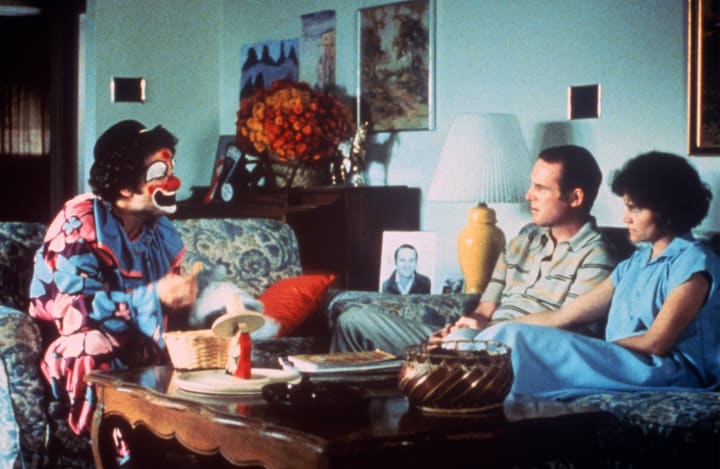
If you're not a sociopath, then you might be a performer, someone who knows that the camera is on them and heightens their behavior. Real Life uses this knowledge of how the camera changes everything to great effect. You have Grodin's comical attempt to be extra-normal on camera, his daughter performing for the camera, any chance she gets, and his wife doing what she can to avoid the camera until she recedes into just trying not to do anything strange or too interesting, a different kind of performance, an act of normalcy that finds you never having to pass gas, pick your nose or pull your underwear out of your butt.
Brooks is part director, part ringmaster at a failing circus and the performance is absolutely brilliant. The heightened Albert Brooks character is an arrogant, pompous and ultimately clueless. He's a detached Hollywood weirdo who doesn't understand the real world he's trying to capture. It's a meta-joke in the most Brooks-ian way, a reality movie where no reality is capable of being captured. It's really happening but the camera creates a layer of impenetrable artificiality that Brooks cannot break through but refuses to stop trying.
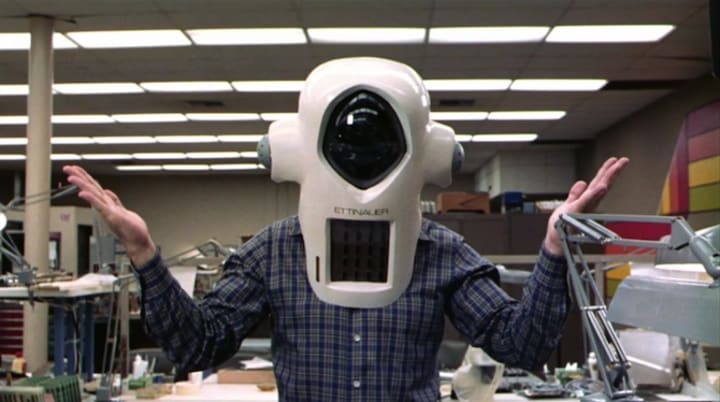
This leads to a truly wild ending that absolutely delights with its insanity. I will leave it for you to see for yourself, if you haven't already. Real Life is a masterclass of how you raise the stakes in a comedy until there is absolutely no higher to go. The collapsing house of cards in Real Life is utterly hysterical thanks to Brooks completely losing the plot and becoming unhinged. I adore the ending of Real Life, it's the only way this movie could have ended and that realization adds a particularly dark comic brilliance to all that came before it.
Real Life is the classic on the next edition of the I Hate Critics Movie Review Podcast. We are celebrating the work of Albert Brooks with the release of the documentary Albert Brooks: Defending My Life on HBO Max. Along with Real Life and the new documentary we are also watching Brooks' true masterpiece, 1991's Defending Your Life, co-starring Meryl Streep. This has been my favorite week in the podcast history as I love Albert Brooks with my entire being. I've rarely related to an artist as closely as I relate to Brooks. This week has reminded me of why I love his work so much.
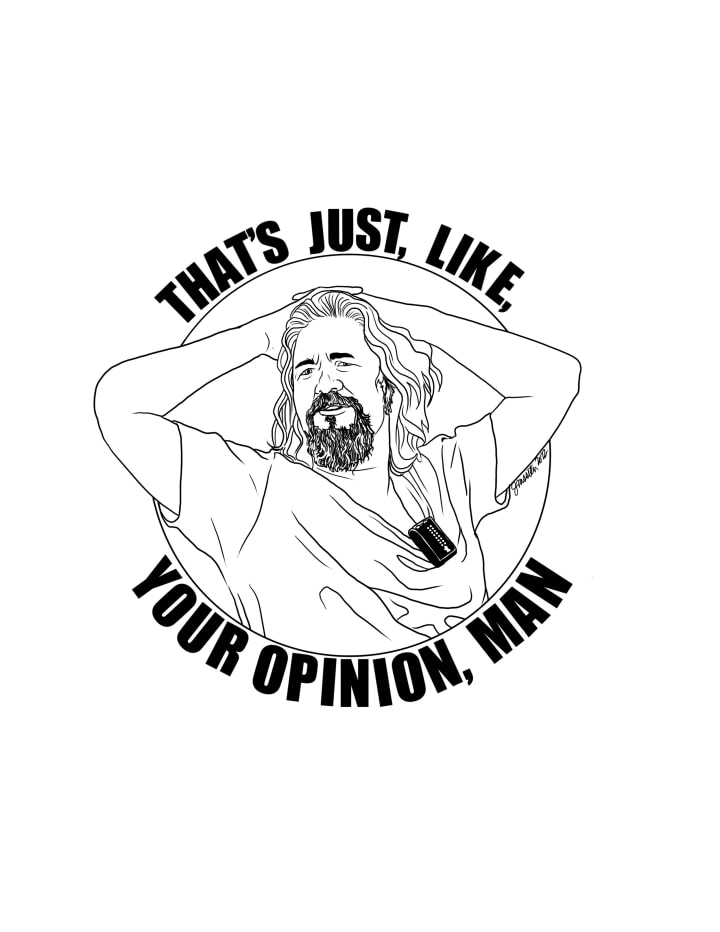
Find my archive of more than 20 years and nearly 2000 movie reviews at SeanattheMovies.blogspot.com. Find my modern review archive on my Vocal Profile, linked here. Follow me on Twitter at PodcastSean. Follow the archive blog on Twitter at SeanattheMovies. Listen to me talk about movies on the I Hate Critics Movie Review Podcast. If you have enjoyed what you have read, consider subscribing to my writing on Vocal. If you'd like to support my writing, you can do so by making a monthly pledge or by leaving a one-time tip. Thanks!
About the Creator
Sean Patrick
Hello, my name is Sean Patrick He/Him, and I am a film critic and podcast host for the I Hate Critics Movie Review Podcast I am a voting member of the Critics Choice Association, the group behind the annual Critics Choice Awards.






Comments
There are no comments for this story
Be the first to respond and start the conversation.